April 14, 2025 | 16:27 GMT +7
April 14, 2025 | 16:27 GMT +7
Hotline: 0913.378.918
April 14, 2025 | 16:27 GMT +7
Hotline: 0913.378.918
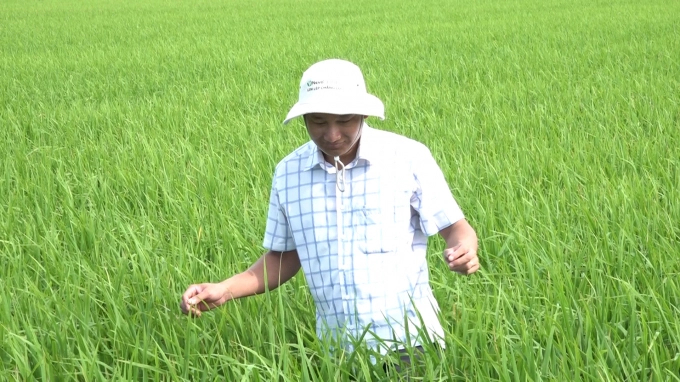
Farmers gain more economic benefits when applying advanced rice farming techniques. Photo: Minh Phuc.
Advanced rice farming techniques have been applied across Vietnam, helping to reduce the negative impacts of agriculture production on the environment and increase rice productivity.
According to experts, in recent years, the productivity and efficiency of rice production in Vietnam have increased slowly, mainly due to the negative impacts of climate change and the decline in soil fertility.
For years, the amount of organic fertilizer applied to rice has been decreasing. The abuse of chemical fertilizers and pesticides is still quite common in many localities, resulting in soil degradation, hardening, loss of texture, reduced water retention and nutrient absorption.
The abuse of chemical fertiliser also left negative impacts on the growth of crops and microbial diversity, increasing production costs and polluting the environment.
According to the Vietnam Fertilizer Association, the current domestic demand for fertilizer is about 11 million tonnes per ar, of which non-organic fertilizers account for about 90%. Demand for organic fertilizers and some other types is about 10%.
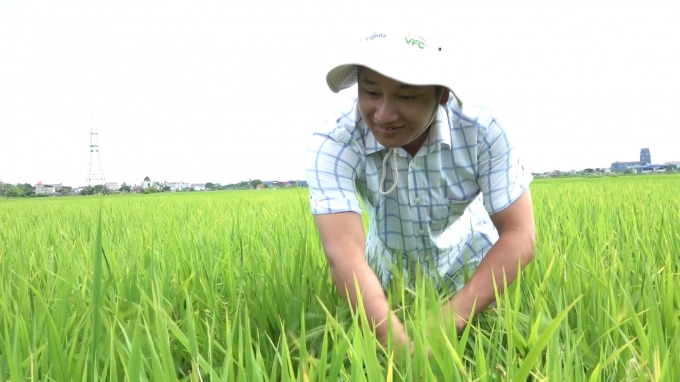
Advanced rice farming techniques have been applied across Vietnam, helping to reduce the negative impacts of agriculture production on the environment and increase rice productivity. Photo: MP.
In rice production, the cost of fertilizers is quite high, but the efficiency is low, less than 50%. The fertiliser is lost through leaching, evaporation, deep penetration into the soil and water underground. Harmful insecticides caused the ecological imbalance in soil, water and air pollution and reduced quality of agricultural products.
Besides, the over-sowing and the absence of water-saving methods also add burdens for rice farmers in covering costs of seeds, watering and irrigation, especially in the context of climate change.
For the last few years, under the project on National Rice Products, studies on advanced rice farming technique have been conducted and the techniques were applied in rice cultivation in Red River Delta region, coastal south-central region and Mekong Delta.
The advanced farming technique helped increase rice productivity and quality as well as ensure food safety and make the rice more resilient to climate change impacts.
Among advanced techniques that have been applied under the project is the use of Trichoderma spp to inhibit disease-causing fungi and speed up the decomposition of straw before ploughing.
Another technique is to use certified high-quality seeds, to treat pathogens in the seeds before sowing, to improve the substrate to maintain a stable pH so the seedling retention time would be prolonged without adding nutrients. The technique is especially helpful in weather which is unfavourable for transplant.
Machines are further used in sowing, spraying insecticide, fertilising and harvesting. Water-saving methods are also deployed.
Lai Dinh Hoe, deputy head of the Institute of South-Central Agricultural Science and Technology said that in the south-central region, the use of advanced techniques helped reduce 40-50 per cent of seeds on each hectare of cultivation, save over 30 per cent of water per season, over 30 per cent of the cost for plant protection products.
Meanwhile, rice productivity increased 11.32-11.8 per cent, he said, adding that as a result, production cost reduced about seven per cent and farmers earned additionally VND8.16-8.83 million per ha compared with those using the conventional techniques.
Dr Tran Ngoc Thach, director of the Mekong Delta Rice Research Institute said that under the national rice products project, the use of high-quality rice seeds increased to more than 75 per cent and each hectare of rice cultivation required less than 150 kg of seeds.
Translated by Bich Huong
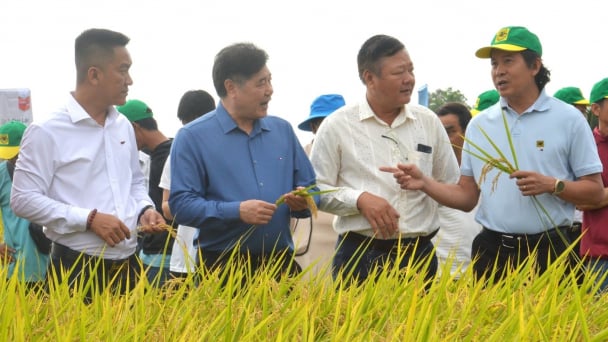
(VAN) The results from pilot fields are catalyzing the expansion of the One million hectares of high-quality, low-emission rice project in Kien Giang.
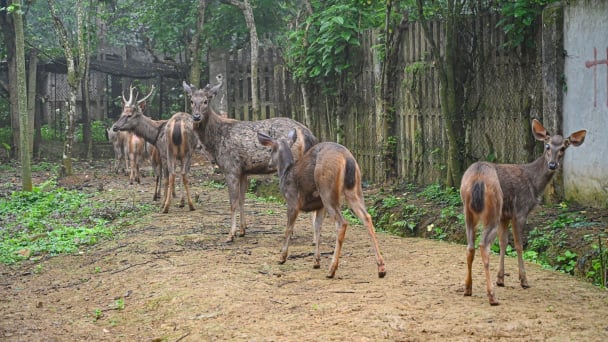
(VAN) On the morning of April 11, Cuc Phuong National Park received 18 individuals of endangered and rare wild animals from Da Nang city.
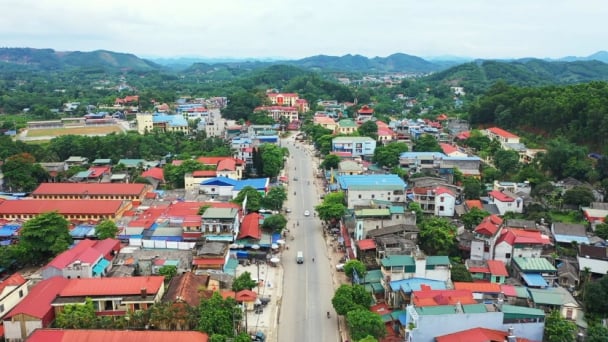
(VAN) FAO supports Vietnam in enhancing survey sampling techniques for the 2025 nationwide agricultural and rural census.

(VAN) By participating in the green transition, manufacturers become an indispensable part of the circular economy, contributing to resource optimization and environmental protection.
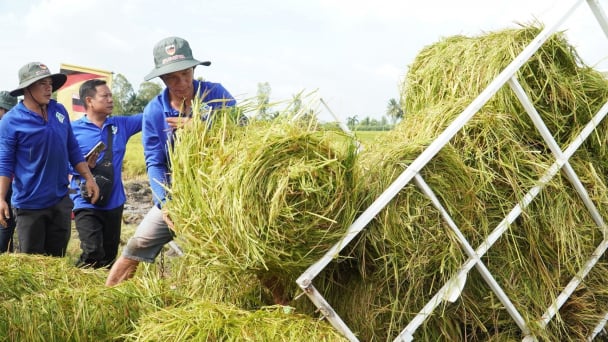
(VAN) The One Million Hectares of High-Quality and Low-Emission Rice Program can generate nearly 14 million tons of straw annually, posing an urgent requirement to diversify straw-based products.
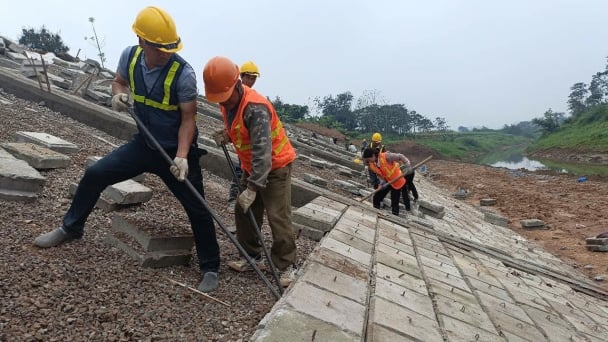
(VAN) This figure was recently announced at a conference held in Yen Bai, focusing on climate-resilient infrastructure development for ethnic minority regions.
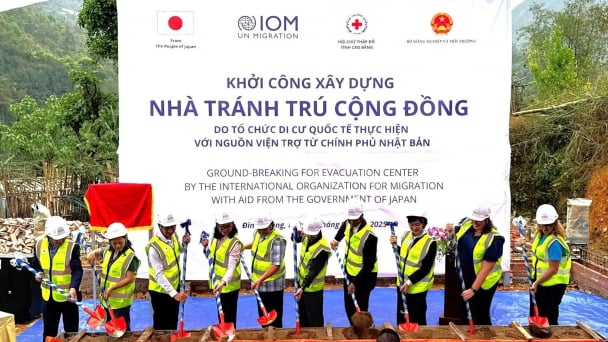
(VAN) The evacuation center is a practical work in efforts to respond to natural disasters and adapt to climate change in vulnerable areas.